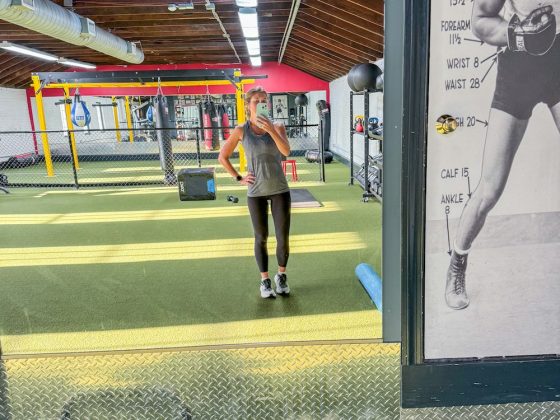I know Gratisfied is a natural-foods company, but given that it was launched from the foundation of my nutritional philosophy, I wanted to put on my health coaching hat for a sec. After all, the company’s name has roots in mindful eating (feeling grateful + satisfied). We are in a time when people’s perspectives are shining towards physical health, and being more mindful – both in life and with our food – is having a moment. Find some tips, tricks, and mindset shifts below.
The mind plays a powerful role in the eating process. Did you know digestion starts in the mind? It is called the cephalic phase of digestion. It’s why your mouth starts to water when you watch a commercial for an indulgent dessert of savory slice of pizza; it’s why you eat popcorn and M&M’s on autopilot while scrolling social media, and suddenly look down at an empty bowl/bag but you could still keep eating. The former scenario describes when the mind is present; the latter when it is not. Either way, the mind affects meal time.
When your body gets the memo that you are in fact eating food, your brain and body can work together to ensure you feel satiated and satisfied in a timely manner. Otherwise, your digestion has to work even harder, and it is already a laborious process (you can’t always feel it). Here are 5 tips for eating more mindfully.

Eat without distractions. Put down your phone, close your computer, turn off the television. Be there with your meal. Sit at a surface where you can create a beautiful space by setting the table, using a pretty plate, lighting a candle. These small details make a difference.
Breathe. Your body needs oxygen for optimal metabolism. Lining the interior of your small intestine, there are finger-like villi which are responsible for extracting the nutrients from your food. Given that your intestinal villi need oxygen from the blood in order to breakdown and assimilate nutrients, when we don’t slow down and breathe, oxygen decreases, which in turn, decreases nutrient absorption. When nutrient absorption decreases, metabolism and fuel stores decrease (and energy suffers as well).
Chew your food. It’s a mechanical action that is a part of the eating process for a reason. Not only does it initiate the release of saliva (which contain essential enzymes) to start breaking down your food, but it helps to send the message to your brain that you are in fact eating. It locks in that mind-body connection. Additionally, this one act alone could help relieve any digestive distress and increase energy! When your food is better broken down, nutrients are more easily assimilated. As a result, you might feel an increase sense of energy and satiation.
Rethink portion control. Digestion takes up a lot of energy and effort. When we eat to the point of feeling overly full (and then you immediately feel tired), it’s because you have put your gut in to overload and it can’t keep up. Think about eating to the point of lightness and energy, eating an amount where your stomach still has enough room to “churn” so to speak. Otherwise it can lead to issues such as heartburn and acid reflux. This mindset shift changes portion control from a place of denial or restriction to instead looking at it through the lens of self-care and ensuring your body has the ability to work efficiently.
Express gratitude. Whether it is before you start eating or during your meal, pause and give thanks for the food on your plate (during this pause it might be a good time to take three deep breaths!). Gratitude and appreciation for the food in front of you will lead to a more pleasurable eating experience. Notice and savor the beauty of the food (the various colors that might be present on your plate) or put it in to perspective and be thankful there is healthy food to eat. When pleasure is present, the body and mind will respond in a more positive way.










